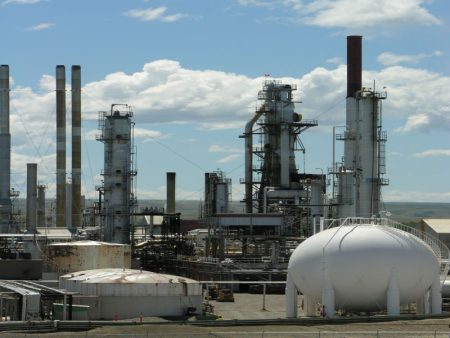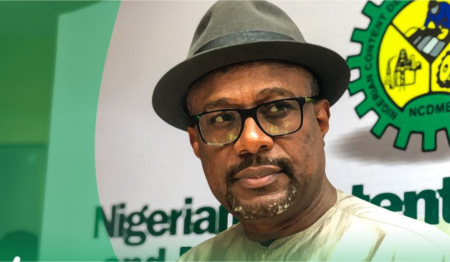
– Kick starts national occupational standards project
Oritsegbubemi Omatseyin
Lagos — A new chapter in human capital development, HCD, for enhanced local content implementation in the hydrocarbons subsector began on Tuesday with the inauguration of an Oil and Gas Sector Skills Council and the launch of the National Occupational Standards, NOS, Project.
Recommended by the Education and Training Sector Working Group of the Nigerian Content Consultative Forum, NCCF, an organ of the Nigerian Content Development and Monitoring Board, NCDMB, the Council and NOS Project were informed by strategic thinking on how to firm up the drive for a thriving and globally competitive oil and gas sector deeply rooted in local content.
The Executive Secretary of the NCDMB, Engr. Simbi Kesiye Wabote, who performed the inauguration in Lagos, said: “In our dynamic and ever-evolving industry, it is essential that we continuously adapt and equip our workforce with the essential competencies, skills, and knowledge that will enable them to excel.”
According to him, a standardised approach to workforce development as envisaged through the NOS project to be implemented in conjunction with the National Board for Technical Education, NBTE, would ensure constant availability of a pool of top-grade human resources, a skilled and competent local workforce for the continued growth and sustainability of our nation’s oil and gas industry.
Engr. Wabote shared insights from experiences of countries renowned for effective occupational standards, noting that: “Learning from the best is an essential step in ensuring the success of our own endeavour.”
He pointed out that the United Kingdom is a global leader in developing and implementing effective occupational standards,” with an approach “characterized by rigorous research, stakeholder collaboration, and continuous monitoring.
He noted that the country’s National Occupational Standards, are regularly updated to reflect industry developments, ensuring relevance and alignment with current needs. The practice is the same in Germany, famed for its “strong emphasis on apprenticeships and vocational training, resulting in a highly skilled workforce,” in Singapore, Canada, Australia, and Japan.
He said strong collaboration among stakeholders, commitment to continuous improvement, adaptability to industry changes, and a focus on quality assurance are common attributes of the aforementioned countries regarding occupational standards.
According to the NCDMB boss, the pilot NOS project is being launched in collaboration with NBTE, who have developed competency frameworks but none so far for the oil and gas industry. This phase covers seven areas of NOS development, namely, Geoscientists (Deepwater Operations), Coded Welders (Fabrication Operations), Instrument Engineers (Fabrication Operations), Divers (Well Servicing/Drilling Operations), 3-D Modelers (EPCI Operations), and additional two earlier submitted by the Petroleum Training Institute, Effurun, Delta State, to the NBTE.
The current framework, Engr. Wabote explained, aims to achieve standardisation, that is, “standardised benchmarks for skills and competencies, ensuring a consistent and high-quality workforce in the oil and gas sector.” Also, alignment by actively involving industry experts, academic institutions, regulators, and other key stakeholders to ensure that the standards align with the specific needs of our industry.
He assured that: “Our commitment to continuous improvement [the third objective of the framework] means that the NOS will evolve to adapt to the ever-changing landscape of the oil and gas sector,” and that “Regular reviews and updates are therefore required to keep standards relevant and up to date.”
Under Quality Assurance, he disclosed that the establishment of a system for accrediting training providers, with the assistance of OGTAN, Oil and Gas Trainers Association of Nigeria, aims to guarantee the delivery of high-quality education and training program.
Lifelong Learning, as an objective, is to be supported as well as promotion of a culture of skills development and professional growth, ensuring that our workforce remains competitive on a global scale.
The NCDMB boss urged that in drafting the National Occupational Standards, certain considerations must not be overlooked. These include global competence given that the oil and gas industry is inherently international which makes it imperative to benchmark our competencies not just against local requirements but also against global standards.
“Talent Development and Retention is also vital because our ability to attract, develop, and retain top talent is directly tied to the quality of training and professional development we offer. Innovation and Adaptation are equally critical because the oil and gas sector is evolving rapidly, with new technologies, regulations, and market dynamics shaping the industry,” He stated
In his concluding remarks, Engr. Wabote noted that “the inauguration of the Sector Skills Council marks the start of an ambitious journey, expressing his confidence that with dedication and commitment of stakeholders, desired results would be achieved.
He expressed his deepest appreciation to the Education and Training Sectoral Working Group of NCCF, NBTE, and colleagues in NCDMB for their hard work in putting together the pilot project.
In a goodwill message, the representative of Engr. Gbenga Komolafe, the Chief Executive Officer of the Nigerian Upstream Petroleum Regulatory Commission, NUPRC, expressed delight that the inauguration of the Sector Skills Council would advance skills development and capacity building in an industry he described as strategic to the national economy.
He said the NUPRC is committed to ensuring that the highest standards of efficiency and safety, as well as environmental sustainability, are attained in the oil and gas sector and that the collaborative nature of the Council, which comprises knowledgeable and dedicated individuals from industry, academia, and regulatory bodies, promises to align all stakeholders with the pursuit of the best for the industry and the nation.
He expressed gratitude to stakeholders, particularly the NCDMB and NBTE, for their contributions toward the establishment of the Council.
Goodwill messages were also given by representatives of the Nigerian National Petroleum Company Limited, NNPCL, Dorman Long Engineering, Shell Nigeria, and Seplat.
They commended the NCDMB and NBTE for their foresight and commitment that made the Oil and Gas Sector Skills Council a reality, noting that the initiative was crucial for developing internationally recognized skills and occupational standards.
In concluding remarks, Dr. Ama Ikuru, General Manager of the Capacity Building Division, NCDMB, outlined the vision for 2024, noting that a significant impact would be made in job creation and industry-wide growth.



